Owning a dog of any kind can be a huge expense. However, when you have one as large as the Great Pyrenees, you can probably estimate that you will be spending much more on average than a normal dog owner.
The food alone can drastically impact your budget. In this article, we’re going to go over every single aspect of dog care with the Great Pyrenees in mind. Then you can get a good idea on exactly how much money will come out of your pocket and ways that you can save.

Bringing Home a New Great Pyrenees: One-Time Costs
When you bring home your Great Pyrenees, there are quite a few costs right up front you will have to anticipate. You will have to purchase all of the supplies as well as consider the cost of the dog you plan to buy or adopt.
Free
Sometimes, there are circumstances where you can find the Great Pyrenees for free. Oftentimes this comes with an accidental litter or a person who has run across hard times and needs to rehome their pooch.
If a person has encountered an accident, they might get rid of the puppies for free to a good home. If that’s the case, you might just get lucky, but don’t count on it.
Keep in mind that if you do get a dog for free, you need to know any potential issues involved with that animal, such as aggressive tendencies, major health issues, or any other factors that might change your mind.
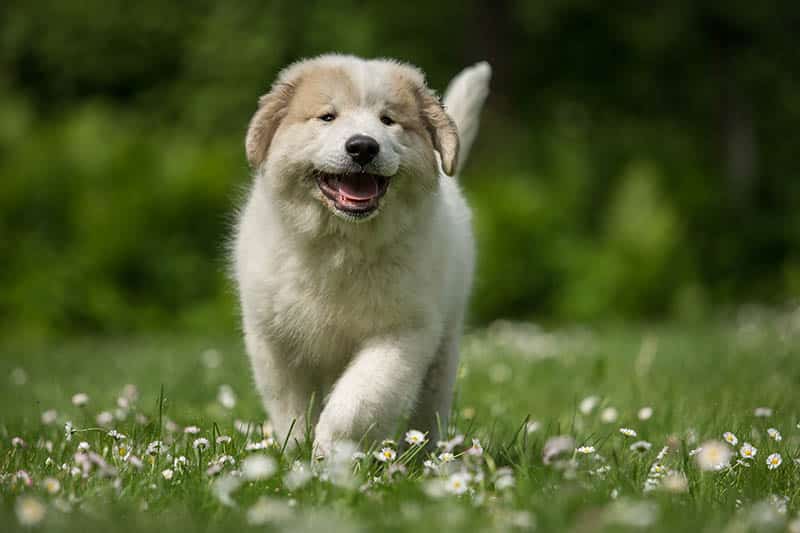
Adoption
Great Pyrenees are pretty pop5ular, so you will likely run across many of them in rescues and shelters. Luckily, when you adopt from a rescue or shelter, you can get a full history of the dog, , spay/neuter, and a much lower cost than buying one from a breeder.
Always research the rescue or shelter of your choice to make sure that they are ethical and sound. If you have cats or any other animals in the home, it is important to know if the animals have been tested with other animals.
If necessary, come in for a meet and greet so that everybody in your family can get acclimated, both furry and fleshy alike.
Breeder
Getting a Great Pyrenees from a breeder is definitely a big decision. There are so many upsides to it, such as selecting the exact puppy you want, choosing the breeder of your choice, and picking a price range that works for you.
Keep in mind when you are selecting a Great Pyrenees from a breeder that you should always select someone with a long history of healthy litter. Many breeders will make you sign puppy contracts, put down deposits, and potentially other paperwork to ensure that you are going to be the best fit possible for this puppy.
If a breeder isn’t being extremely thorough, you might be running into a backyard breeding or puppy mill situation. Be sure to do your research and steer clear of these operations as they put dogs’ health and livelihoods at stake.
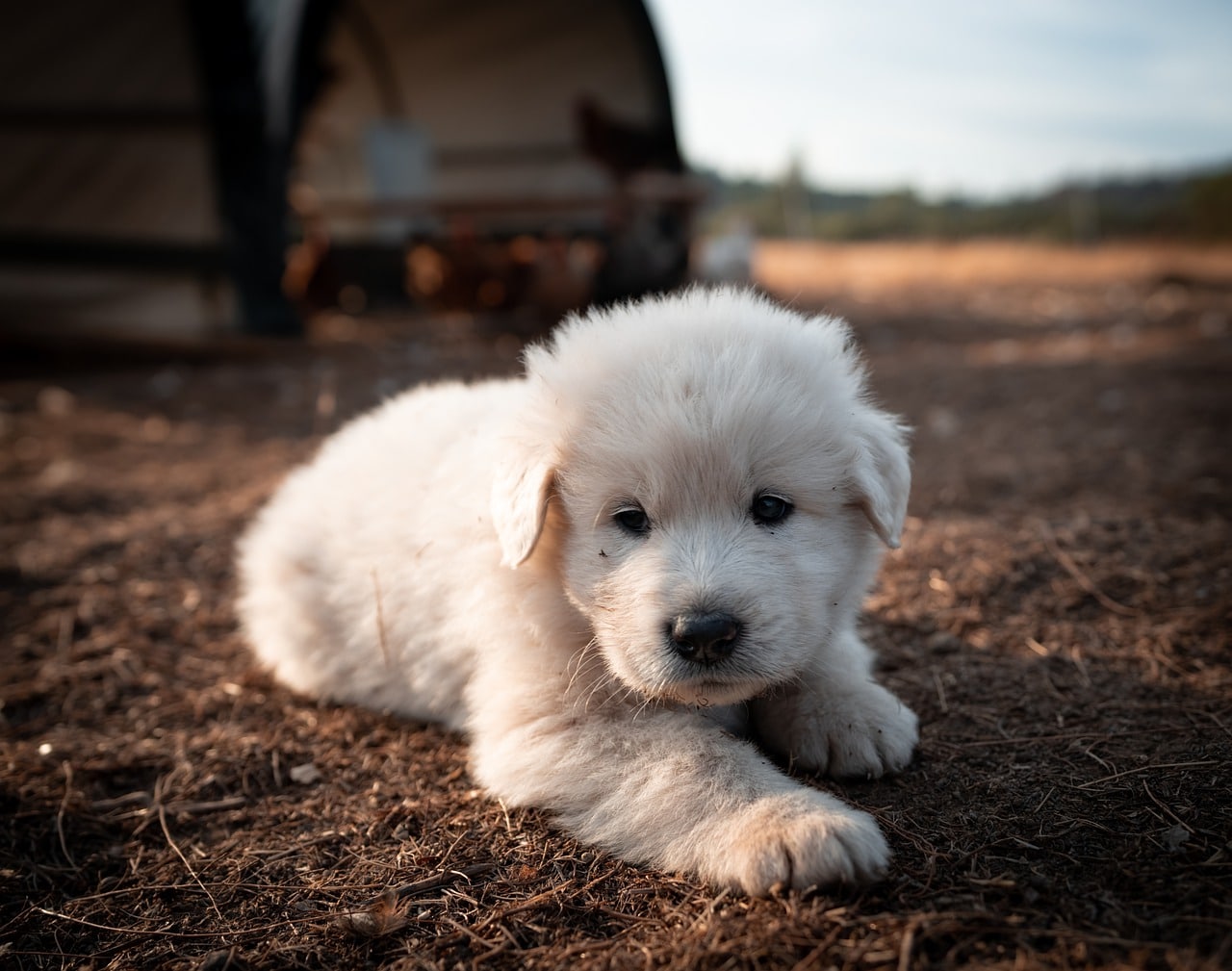


Initial Setup and Supplies
It’s a really good idea to get a list of supplies gathered up before you even bring your dog home. You will need lots of items to get you started as a successful owner. The list below doesn’t account for food, but here are some general care supplies and costs you can expect when bringing your Great Pyrenees home. Some of these purchases are one-time costs, such as spaying/neutering and microchipping, and others may need to be made regularly, such as teeth cleaning and replacing supplies when they wear out.
List of Great Pyrenees Care Supplies and Costs
| ID Tag and Collar: | $15 |
| Spay/Neuter: | $145 – $200 |
| X-Ray Cost: | $100 – $250 |
| Microchip: | $45 – $55 |
| Teeth Cleaning: | $150 – $300 |
| Bed: | $25 – $50 |
| Kennel: | $50 – $150 |
| Nail Clipper (optional): | $7 |
| Brush: | $8 |
| Toys: | $30 |
| Carrier: | $45 – 60 |
| Food and Water Bowls: | $10 |


How Much Does a Great Pyrenees Cost Per Month?
Monthly costs can be quite hard to determine and will vary depending on the individual dog. Some dogs will need to have more areas of care than others, which can lower or raise the cost.
Initially, your dog might be pretty inexpensive but develop some chronic health issues that require constant monitoring and treatment. It’s very hard to determine exactly how much you will pay for them per month, but you can get a pretty good idea from the details listed below.
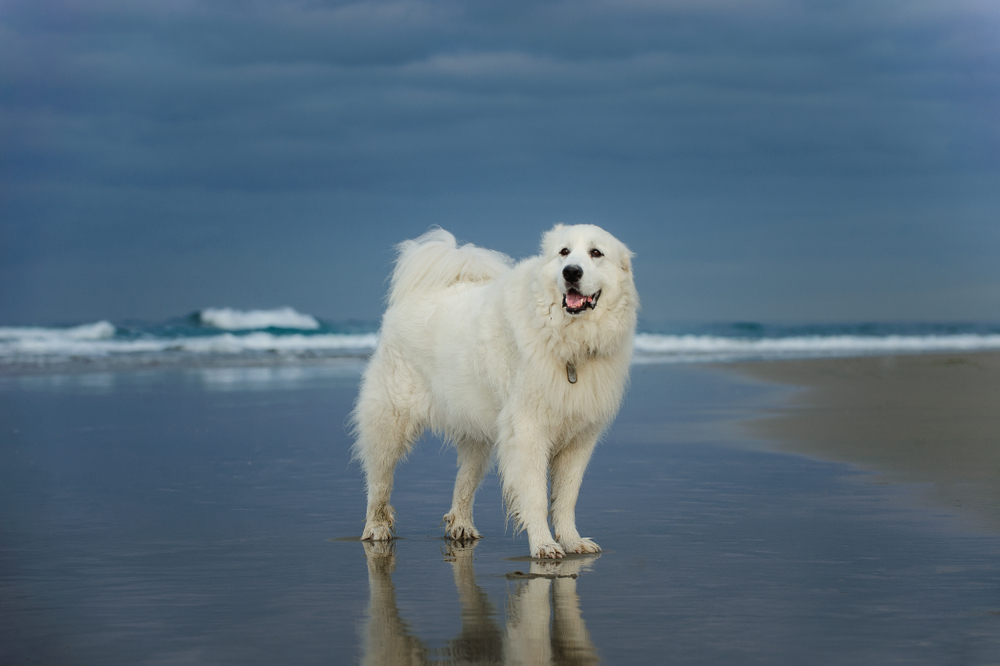

Health Care
Luckily, healthcare shouldn’t be a monthly expense. In the first year of life, your puppy will go to the vet quite a few times. They will need monitored growth, routine vaccinations, and spay or neuter surgery if it wasn’t performed before you brought your dog home. You can also opt for elective procedures, like microchipping.
Afterward, your appointments will trim down to annual visits. If your Pyrenees is ill or develops a chronic condition, you might expect to visit the vet more frequently.
Food
If you don’t have the money in your budget, a Great Pyrenees might eat you out of house and home. These dogs are massive and their food bowls will reflect that. As they grow, they will be ravenous eaters that will require a high amount of dog food to sustain.
Once they are adults, they will have a stabilized meal every day, but eat in a high quantity. It is important to not skip out on good nutrition just because you don’t want to spend the money required to feed them. But you do have some wiggle room when it comes to the exact food you choose for your budget.
In general, they require high-quality dog food that will give them the necessary amount of carbs, protein, and nutrients necessary to sustain their large structures. It is a really good idea to get a recipe designed for a large breed so it can nourish their joints with supplements like condition and glucosamine.
Dogs that have certain dietary needs may require more expensive food, but you can discuss with your vet the best recipes and ways to save money.
Grooming
Grooming is an absolute must! These dogs require a substantial amount of grooming because they have a long, dense, double coat that needs constant attention.
If you take care of these issues at home, it likely won’t be too much of a problem, but when you go to a professional breeder, that’s where things can get expensive.
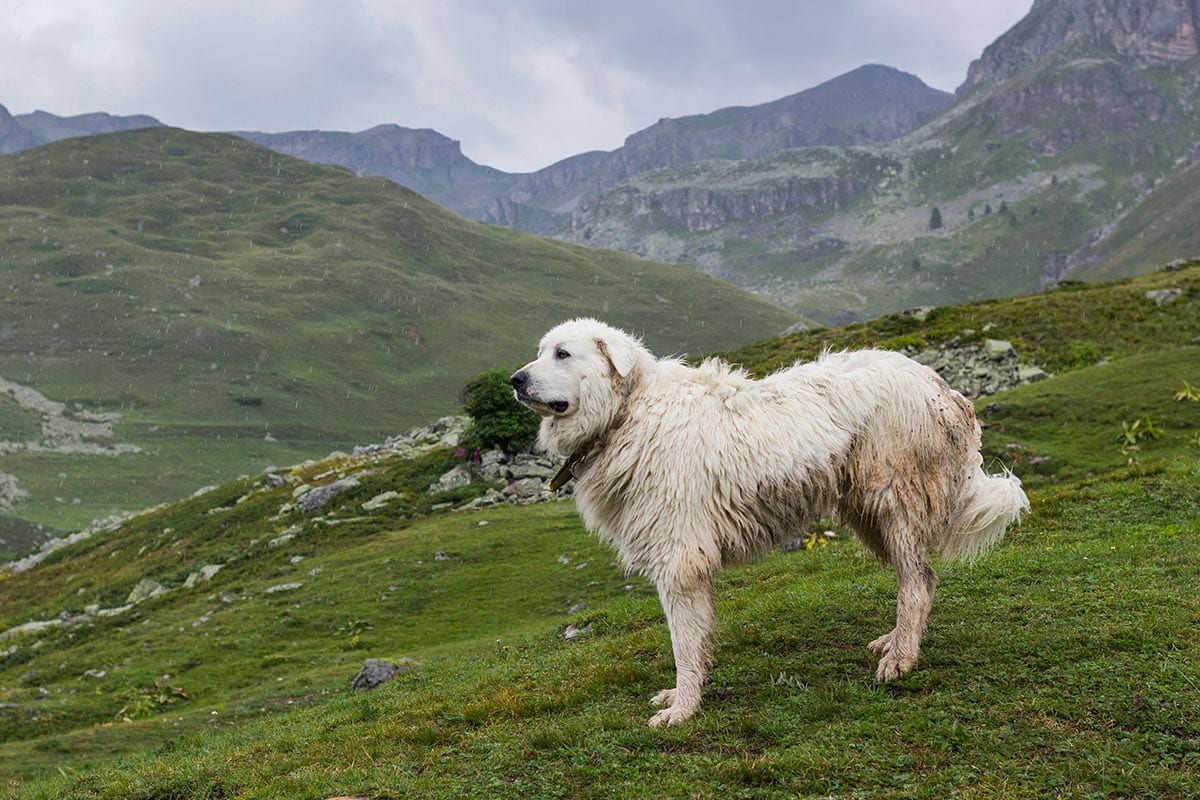

Medications and Vet Visits
The Great Pyrenees is not unhealthy by nature. In fact, these dogs were bred to be extremely hardy and able to withstand harsh environments and cold temperatures.
Because of that, you might not spend as much on medication and vet visits as you would with some other breeds, but that’s not necessarily the case for every dog. Health is very individual sometimes and depends on several factors, such as age, weight, environment, and genetics.
Medications can get pretty pricey depending on the underlying health condition. Having insurance early on can help alleviate a lot of expenses later.
Pet Insurance
More and more pet parents are relying on pet insurance to provide coverage in tough times. Regular vet care is expensive enough these days, and emergency vet care can literally mean life or death for some animals.
Pet insurance is a great safety blanket to ensure that you’re able to get vet care for your pet in the direst situation. Most of the time, families can find affordable pet insurance that fits their budget.
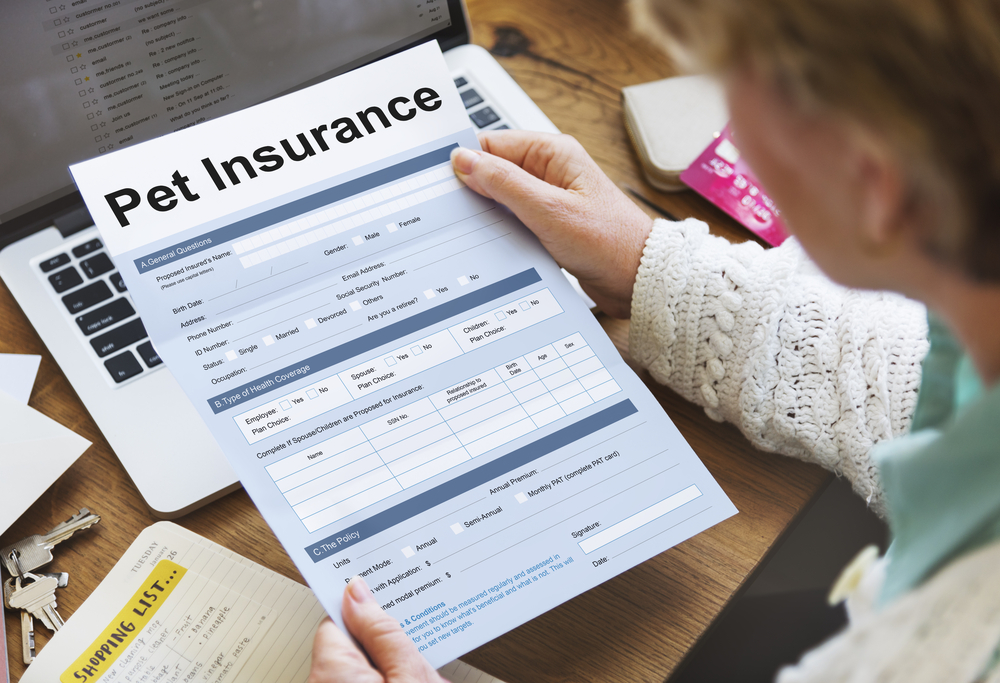

Environment Maintenance
Dogs are going to get your house quite messy sometimes. If you are training a puppy or you have a destructive pooch on your hands, you’re going to need a lot of materials around for environmental maintenance.
| Poop Bags: | $5/month |
| Puppy Pads: | $5/month |
| Wipes: | $10/month |
Entertainment
What Great Pyrenees doesn’t love a good chew toy or fun item to have around? Some Great Pyrenees even love having stuff to carry around in their mouth. Providing them with entertainment can vary in cost depending on the destructiveness level of your particular pet.
The Great Pyrenees is a massive dog, meaning they have powerful jaws. While they’re not notorious chewers, they certainly can go through their phases, especially in the puppy stage.
Your dog will require lots of things like chew toys, interactive games, puzzles, and whatever else strikes their fancy.


Total Monthly Cost of Owning a Great Pyrenees
Ultimately, the total cost can be on the lower high end, depending on the overall maintenance and individual needs of your Great Pyrenees.
Additional Costs to Factor In
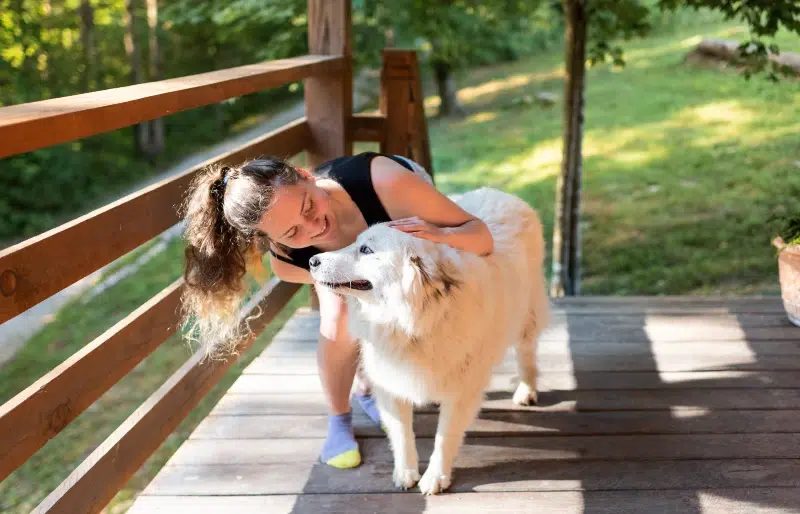

As pet owners, there are some things that happen that we don’t anticipate. Normal things like buying a bag of dog food might seem like a no-brainer, but there are other situations that you might not factor into the budget.
Pet Sitters
When you leave, where is your pet going to go? If you plan on leaving any longer than 12 hours, it is imperative to have someone there who can let your dog out to use the bathroom, make sure they are fed and watered, and otherwise cared for.
You can take your dog to a boarding facility, kennel, or private pet sitter. Many private pet centers come right to your home to make the experience more personalized. Rates will vary, depending on the facility or person and the individual rates.
Vacation
You need to figure out what to do with your dog if you go for an extended vacation. If you let them tag along, it is important to find pet-friendly hotels, restaurants, and beaches around, so your dog isn’t bored while you’re on the road.
Household Damage
All dogs go through a semi destructive stage, and many dogs never come out of it. Your dog might chew up your belongings, trim, carpets, and other items that are irreplaceable or expensive.
Training
Training is a crucial part of owning any pet. Sometimes, we can handle the task on our own, and sometimes we need a little help. If you want a mannerly Great Pyrenees, you might have to elect for professional training.
Different trainers will charge various rates, depending on the location, preference, and quality of service.


Owning a Great Pyrenees on a Budget
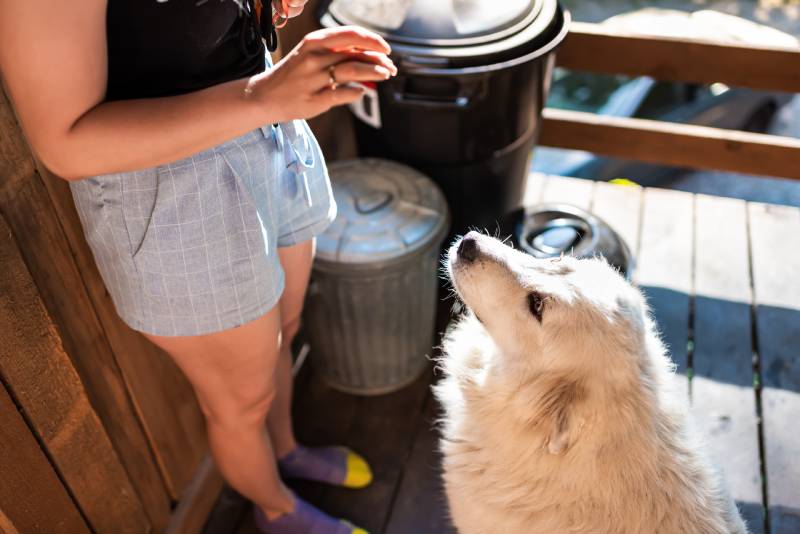

We don’t recommend cutting corners when it comes to keeping any animal. But everybody has a budget because the cost of living is pretty outrageous for any person. There are ways you can save a little bit of money these days.
Saving Money on Great Pyrenees Care
There are various ways that you can save money on care for your Great Pyrenees. It doesn’t have to break the bank every month and you can get pretty creative in your spending over time.
Autoship Options
With certain recurring purchases such as dog food, you can sign yourself up for autoship. This typically knocks off a few dollars per order and can save you quite a few dollars in the year.
Low-Cost Vet Clinics
Many different rescues, shelters, and mobile clinics offer reduced vet care for pets. Vet clinics can be extremely pricey, so it is best to have a backup plan in case you need to get your dog spayed or neutered or get them up to speed on their vaccinations.
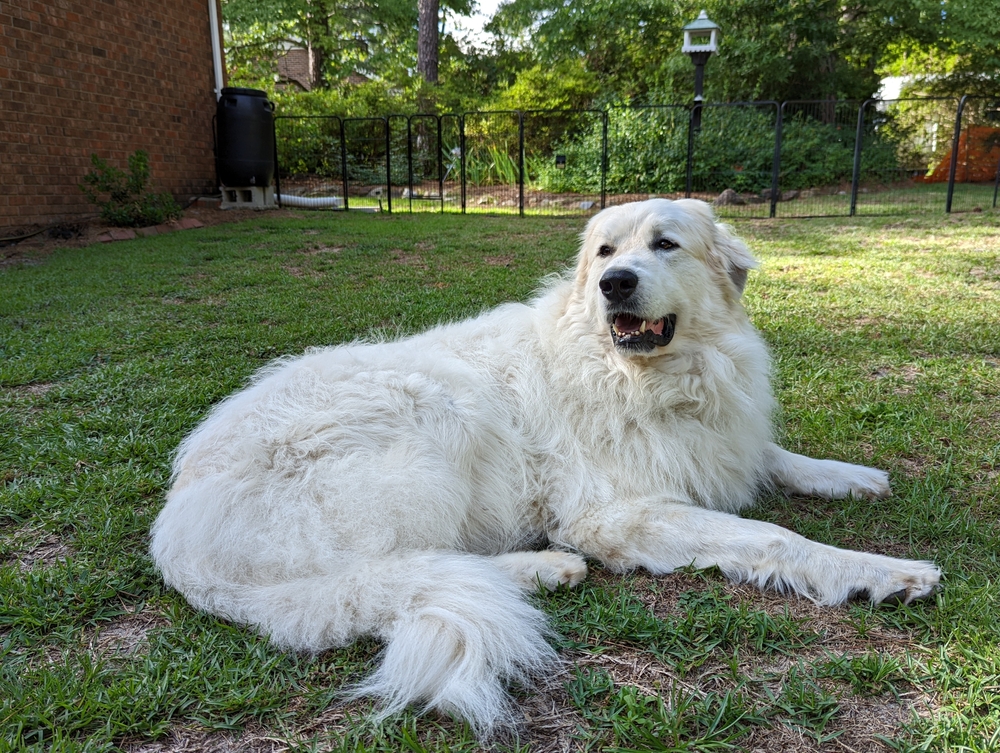

DIY Creations
You don’t need to spend an arm and a leg on toys for your Great Pyrenees. There are plenty of options you can make from the comfort of your own home. If you have old materials and scraps laying around, you can create several different supplies from doggy beds to toys.
Look for Secondhand Items
You can take to Facebook marketplace and other online shopping options where you can look for secondhand items. You can find things like crates, kennels, beds, and other belongings that other pet parents no longer need. It can save you a lot of money in the long run.


Conclusion
Now you understand a little bit more about the overall cost of a Great Pyrenees. Numbers can be exponentially higher or lower, depending on the needs and health of your pup. You can certainly cut corners if you want to, but don’t ultimately skip out on important aspects of dog care because you want to save money.
Featured Image Credit: Sierra Tango, Shutterstock
